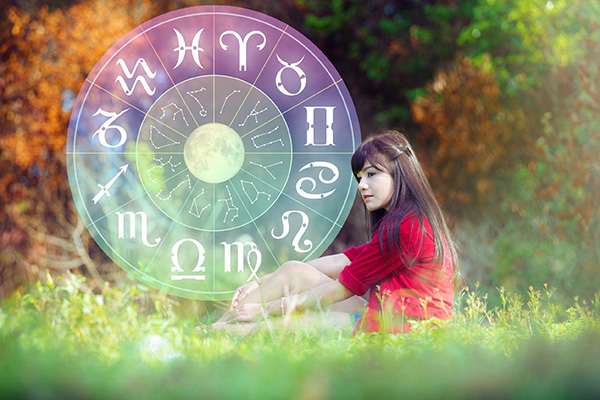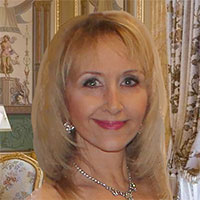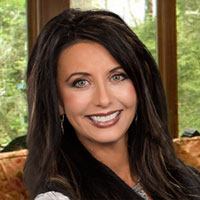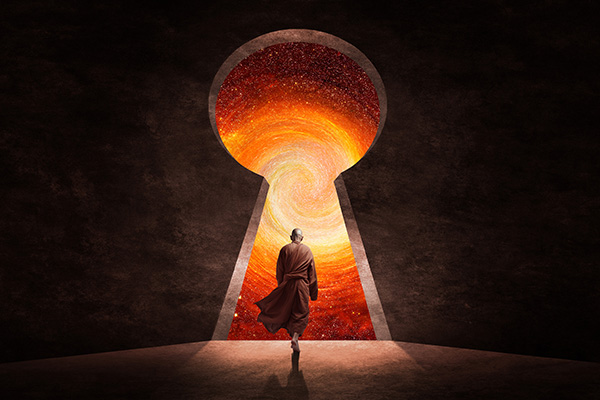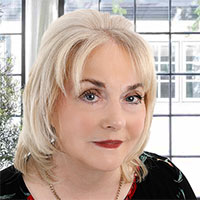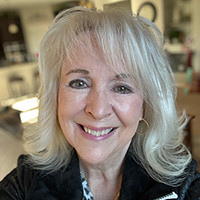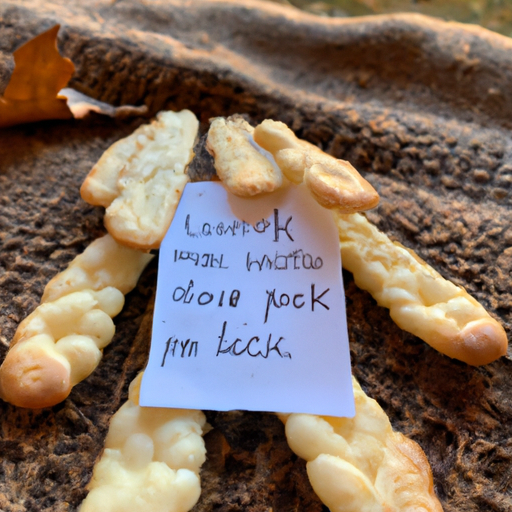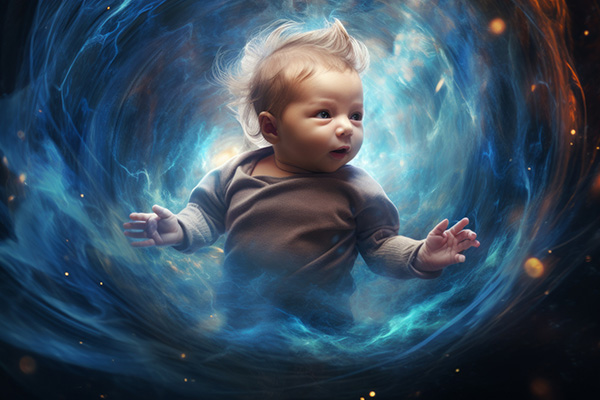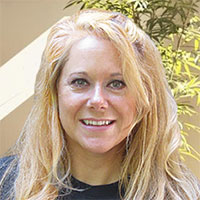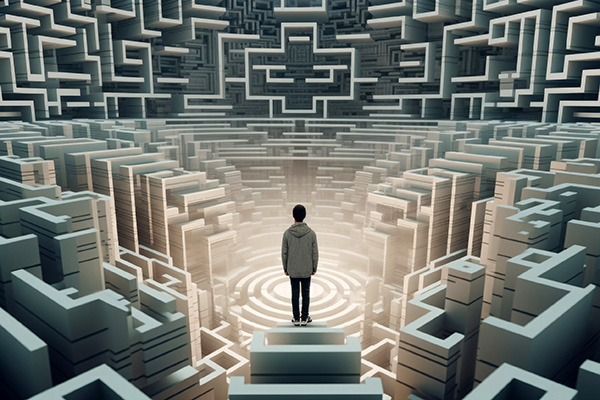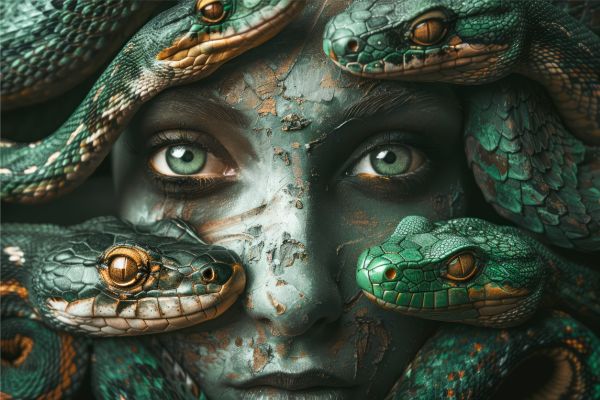 As we embrace 2025, the essence of the Yin Wood Snake begins to emerge, showcasing its distinctive rhythm and impact.
As we embrace 2025, the essence of the Yin Wood Snake begins to emerge, showcasing its distinctive rhythm and impact.
Though the thrill of the Chinese Lunar New Year festivities might have subsided, the authentic nature of the year is now starting to reveal itself.
This moment is ideal for attuning with the energies of the Wood Snake, utilizing its mystical strength, and charting a purposeful, intentional course for the upcoming months.
The Year of the Wood Snake presents a balanced amalgamation of intuition, enigma, and consistent growth.
The Snake, renowned for its insight and ability to transform, melds with the supportive and stabilizing qualities of the Wood element this year, nurturing patience, flexibility, and a profound connection to our spiritual and emotional foundations.
In contrast to the spontaneous Fire Snake or the methodical Metal Snake, the Wood Snake promotes thoughtful advances and long-range vision, making 2025 a prime year for significant transformation.
In various cultures, the Snake signifies renewal, knowledge, and mystery. Its capacity to shed its skin symbolizes the letting go of outdated beliefs, constraints, and habits, paving the way for fresh beginnings. This year encourages you to welcome transformation, have faith in your instincts, and connect with the delicate yet potent energy of the Snake as you embark on a year of deep personal and spiritual development.
The snake holds mystical energies and wisdom that you can tap into. This year is perfect for enhancing your intuitive skills since the snake possesses keen instincts, and this year is tied to aligning with the heavenly way ~ CT Holman
Energetic Influences Of The Wood Snake
In mystical traditions, the Snake symbolizes the earth and the hidden realms. Its movements are intentional, almost meditative, reminding us to slow our pace and engage with life purposefully. This year promotes contemplation and self-examination, allowing you to forge a deeper connection with your inner truth. It’s a time to heed the whispers of your spirit, as the Snake’s energy strengthens your intuitive capacities. You might find yourself attracted to practices such as meditation, journaling, or energy healing, which can assist you in unveiling concealed wisdom within.
The Wood element adds an additional dimension of stability and resilience to this Snake year. Wood signifies growth, expansion, and adaptability, which helps you forge solid foundations while remaining responsive to change. Just as a tree steadily reaches for the sky while its roots delve deeply into the soil, the Wood Snake year urges you to harmonize aspiration with stability. This is an optimal moment to cultivate long-term aims, whether in your career, personal growth, or relationships.
Yin & Yang In A Wood Snake Year
The year 2025 is a “Yin Wood” year, according to the Chinese zodiac and the Five Elements system. This framework in Chinese metaphysics adheres to a 60-year cycle, matching one of the Five Elements (Wood, Fire, Earth, Metal, Water) with the 12 zodiac animals in alternating Yin and Yang phases.
Each year consists of a celestial stem (one of the Five Elements in either Yin or Yang form) and an earthly branch (one of the 12 zodiac signs). A Yang year is always succeeded by a Yin year, sustaining a natural rhythm of balance and transformation.
HEAVENLY STEMS (10 years)
Represent the Five Elements in their Yin and Yang forms:
Wood: Jia (Yang Wood), Yi (Yin Wood)
Fire: Bing (Yang Fire), Ding (Yin Fire)
Earth: Wu (Yang Earth), Ji (Yin Earth)
Metal: Geng (Yang Metal), Xin (Yin Metal)
Water: Ren (Yang Water), Gui (Yin Water)
EARTHLY BRANCHES (12 years)
Correspond to the 12 zodiac animals: Rat, Ox, Tiger, Rabbit, Dragon, Snake, Horse, Goat, Monkey, Rooster, Dog, and Pig.
The Snake is the sixth animal in the Chinese Zodiac cycle, labeling 2025 as a Snake year in the Earth branch. Since 2024 was the Yang Wood Dragon, 2025 succeeds it as a Yin Wood Snake year.
This specific combination – Yin Wood as the stellar component and Yin Fire within the Snake’s earthly nature – generates a dynamic yet unpredictable energy. Yin Wood correlates with creativity, adaptability, and deep reflection, while Yin Fire signifies inspiration, innovation, and the swift dissemination of ideas.
The synergy of these influences makes 2025 a remarkably creative, cooperative, and transformative year, albeit with possibly unexpected changes and surprises. It is a season for discovery, inspiration, and sharing your light with the world. Those who embrace flexibility, intuition, and artistic vision are likely to flourish during this fluid and imaginative year.
Heavenly Stem: Yi (乙) – Yin Wood
Symbolizes gentle growth, adaptability, and calm determination. Envision the delicate shoot breaking through the soil, bending gracefully yet anchored firmly.
Earthly Branch: Si (巳) – Snake
Primarily linked to Fire, particularly Yang Fire. Represents transformation, insight, and subtlety.
The Snake’s concealed aspects include:
Bing (丙) – Yang Fire
Wu (戊) – Yang Earth
Geng (庚) – Yang Metal
Yin Wood (乙) exudes energies of creativity, intuition, and adaptability. Yang Fire (丙) from the Snake infuses passion, illumination, and dynamic transformation. Together, these energies allow the gentle creativity of Yin Wood to energize the transformative force of Yang Fire. This blend supports initiating new concepts and bringing them to fruition with enthusiasm and clarity.
Snakes possess a more observant nature. The Yin Wood Snake resembles a small green snake, unlike a large cobra, meticulously observing before making a decisive move at the right moment ~ Thierry Chow
Famous Yin Wood Snake Personalities
Examining the lives of notable individuals born in a Yin Wood Snake year provides inspiration and insight. It prompts us to consider how creativity, intuition, and the readiness to embrace change can fuel significant personal and societal progress.
The most recent Yin Wood Snake years, occurring every 60 years, were 1905 and 1965. Below are some prominent figures born in these years who made noteworthy contributions across various domains:
Ben Stiller (November 30, 1965)
Ben Stiller is an American actor, comedian, director, and producer who has significantly influenced the entertainment sector. Renowned for his roles in films like Zoolander, Meet the Parents, and Night at the Museum, Stiller blends humor with clever storytelling. He has also directed and produced numerous projects, showcasing a broad range of talents.
J.K. Rowling (July 31, 1965)
British author J.K. Rowling captivated the world with her creation of the Harry Potter series. Her imaginative storytelling and intricate world-building have enchanted readers of all ages. Prior to her literary success, she encountered substantial personal challenges, demonstrating resilience and intuition—the standout traits of the Wood Snake.
Robert Downey Jr. (April 4, 1965)
An acclaimed American actor and producer, Robert Downey Jr. is celebrated for his versatility and charismatic performances. Rising to international fame as Tony Stark in the Marvel Cinematic Universe, he reshaped the superhero genre with both wit and depth. His career has traversed remarkable peaks and daunting valleys, reflecting his resilience and capacity for transformation—echoing the Snake’s symbolism of rebirth and renewal. Downey’s innovative spirit and adaptability resonate with the Yin Wood element’s focus on growth, creativity, and quiet strength.
Sarah Jessica Parker (March 25, 1965)
An esteemed American actress and producer, Sarah Jessica Parker is recognized for her iconic portrayal of Carrie Bradshaw on HBO’s Sex and the City. Her representation of the clever, insightful, and stylish columnist resonated deeply with audiences worldwide, garnering numerous accolades. Beyond acting, Parker has explored fashion design and production, highlighting her versatility and entrepreneurial drive.
Dr. Dre (February 18, 1965)
An influential American rapper, producer, and entrepreneur, Dr. Dre (born Andre Romelle Young) has played a crucial role in shaping the music industry. Co-founding Death Row Records and Aftermath Entertainment, he significantly contributed to popularizing West Coast hip-hop. Dr. Dre has introduced and mentored legendary artists such as Snoop Dogg, Eminem, and Kendrick Lamar, showcasing his visionary approach and transformative influence. His innovative production methods and entrepreneurial ventures exemplify the Yin Wood Snake’s creativity and forward-thinking mindset.
Howard Hughes (December 24, 1905)
An American business magnate, aviator, engineer, and filmmaker, Howard Hughes embodied many talents and contradictions. He shattered aviation boundaries, establishing world air speed records and innovating aircraft designs. In Hollywood, he produced and directed pioneering films like Hell’s Angels. Hughes’s later years were marked by reclusiveness and eccentricity, reflecting the Snake’s connection with mystery and introspection. His relentless pursuit of innovation aligns with the creative and visionary energies of the Yin Wood.
Greta Garbo (September 18, 1905)
Swedish-American actress Greta Garbo became an enigmatic symbol of Hollywood’s Golden Age. Valued for her profound screen presence and capacity to convey complex emotions subtly, she appeared in classics such as Camille and Ninotchka. Garbo’s mysterious persona and desire for seclusion earned her legendary status. Her introspective character and depth encompass the Snake’s wisdom and the Yin Wood’s intuition. Her legacy remains a symbol of timeless elegance and artistic integrity.
Jean-Paul Sartre (June 21, 1905)
A monumental figure in philosophy, Jean-Paul Sartre was a French existentialist philosopher, playwright, novelist, and political activist. His seminal works, including Being and Nothingness and No Exit, delve into themes of freedom, responsibility, and the human condition. Sartre famously declined the Nobel Prize for Literature in 1964, reflecting his personal principles and commitment to authenticity.
Christian Dior (January 21, 1905)
Christian Dior, the iconic French fashion designer, transformed post-World War II women’s fashion with his groundbreaking “New Look” in 1947. Emphasizing elegance and femininity, his designs reinstated luxury and sophistication in a world recovering from conflict. Dior’s artistry and meticulous attention to detail symbolize the Wood element’s growth and renewal, while his ability to inspire change aligns with the transformative nature of the Snake. His legacy endures, influencing fashion houses and designers worldwide.
These individuals embody the creativity, intuition, and transformative qualities frequently associated with the Yin Wood Snake year.
2025 is a year of renewal and redefinition. By tapping into its transformative energies, you’ll navigate the upcoming changes with poise and emerge more assertive, more resilient, and profoundly connected to your purpose ~ Petah Raven
What To Anticipate In A Wood Snake Year
The Year of the Yin Wood Snake delivers a potent combination of transformation, wisdom, and creativity. In Chinese metaphysics, Wood symbolizes growth, flexibility, and new beginnings, while the Snake embodies profound intuition, mystery, and inner alchemy. Combined, they craft a year that promotes thoughtful evolution, strategic planning, and enhanced self-awareness.
Here are some key themes and influences anticipated in 2025:
TRANSFORMATION & PERSONAL GROWTH
The Snake heralds deep and subtle transformation. Unlike abrupt, dramatic shifts, the energy of the Snake fosters quiet yet significant change – akin to shedding skin to unveil a new layer. This is a time for releasing outdated beliefs, patterns, and emotional scars so you can step into a truer version of yourself.
The influence of Yin Wood supports this transition, encouraging self-exploration, healing, and inner fortitude. Shadow work, meditation, and reflective practices will hold particularly powerful potential as they illuminate facets of yourself that require attention. Rather than forcing change, allow transformation to evolve naturally. Resisting this progression can lead to unnecessary strife, while embracing it will offer clarity and alignment with your higher calling.
RELATIONSHIPS & CONNECTION
The energy of the Snake invites deeper, more soulful attachments. This is a year to foster authenticity and vulnerability, shedding the emotional “skins” that leave you guarded. In friendships, family dynamics, or romantic relationships, embracing honesty and emotional depth will cultivate stronger, more meaningful connections.
Moreover, the Wood Snake year underscores the significance of boundaries. While intimacy is encouraged, it’s equally vital to respect personal space—both your own and those of others. Relationships that facilitate mutual growth and personal freedom will thrive, while those rooted in superficiality or control might face challenges.
For those in romantic partnerships, expect a more introspective and spiritually attuned connection. Deeper conversations, shared growth, and emotional healing could fortify your bond. If you are single, this is a year for conscious dating, concentrating on connections that resonate with your soul rather than fleeting attractions.
PATIENCE, STRATEGY & PLANNING
In financial and career pursuits, the wisdom of the Snake advocates for calculated actions over impulsive choices. Just as a Snake waits for the ideal moment to strike, success this year favors those who remain patient, observant, and strategic.
Key career and financial themes include:
Long-term planning: Consider sustainable growth over quick profits.
Precision and timing: Small, thoughtful decisions can lead to substantial rewards over time.
Avoid unnecessary risk: Be cautious about overextending yourself or rushing into endeavors without adequate research.
While the Yin Fire influence within the Snake may bring sporadic flashes of inspiration, it’s essential to ground those ideas into workable actions. Opportunities that appear small at the outset can evolve into significant outcomes if nourished wisely.
CREATIVITY & INNOVATION
With Yin Wood at play, creativity, artistry, and intellectual curiosity will flourish in 2025. This is a prime year for:
Creatives, artists, writers, performers, and designers to explore new styles and techniques.
Entrepreneurs to innovate and craft distinctive business ideas.
Lifelong learners to immerse themselves in philosophy, esoteric knowledge, and advanced studies.
While Yin Fire may prompt bursts of inspiration, it also accelerates the spread of trends and ideas. Those who can harmonize innovation with consistency are likely to be most successful. Whether pursuing a creative endeavor, a career shift, or a personal passion, steady effort will yield the most rewarding outcomes.
SPIRITUAL AWARENESS & GROWTH
The snake has long been linked to mystical wisdom and spiritual awakening. In various traditions, it symbolizes kundalini energy, the coiled life force located at the base of the spine. This year may bring heightened intuition, synchronicities, and deeper spiritual insights.
Rather than a sudden revelation, the influence of the Wood Snake suggests a gradual, sustained awakening. This positions 2025 as an ideal time for:
Embodiment: Engage in energy practices, qigong, yoga, or breathwork to become more centered and grounded. Develop body-based intuition to perceive subtle energy shifts within yourself and others through practices like Qi cultivation (qigong), biofield tuning, or Reiki attunement.
Heightened intuition: Enhance your intuitive awareness with powerful psychic techniques such as automatic writing or intuitive journaling, bibliomancy, scrying, dream incubation, astral projection, or explore a divination method you’ve never attempted.
Divine guidance: Pay closer attention to dreams, omens, signs, and synchronicities. Track recurrent themes that arise in books, dreams, conversations, or serendipitous encounters. If something resonates multiple times in a short span, treat it as divine affirmation. Silently or audibly, ask for a clear sign regarding a particular situation. Then, cease actively seeking it. Allow the universe to delight you with answers when you least expect.
Spiritual practices that require patience and refinement will be especially fruitful. The essential approach is to engage with growth through curiosity rather than urgency—allow wisdom to unfold at its own pace.
The Wood Snake will have many of us on the go, while some may finally get the opportunity to rest after a challenging Dragon year ~ Vicki Iskandar
Practical Tips To Flourish This Year
By aligning with the energy of the Wood Snake and implementing the following strategies, you can maximize the potential of this transformative year, fostering wisdom, growth, and deeper understanding across all facets of life:
Embrace transformation: Release old habits and beliefs that no longer serve you. Growth may feel subtle, but it is impactful.
Trust your instincts: Snake energy enhances intuitive capacities, so heed your inner guidance.
Slow down and reflect: Steer clear of hasty decisions. Allocate time for planning and strategizing.
Prioritize meaningful connections: Build relationships by being open, honest, and emotionally available.
Set long-term goals: Center your focus on sustainable advancement instead of quick wins.
Participate in spiritual practices: Meditation, energy work, and journaling can facilitate a connection with the wisdom of the Snake.
Remain adaptable: The Wood Snake teaches the importance of flexibility, so be open to new chances.
Respect your boundaries: Safeguard your energy and refrain from over-commitment.
Cultivate resilience and inner strength: Shadow work and self-reflection are essential themes this year.
Trust in divine timing: Be patient and believe that the right opportunities will manifest at the most opportune moment.
Welcome this year’s energy with an open heart and an inquisitive mind. Let your creativity flow and allow inspired concepts to take root and blossom into something truly exceptional. Like the snake, move with wisdom—delve into deeper understanding, trust your instincts, and navigate the unseen paths that lead to growth.
This is a year to act with intention instead of rushing ahead; to be guided by creativity and inspiration while remaining rooted; and to trust your intuition and welcome personal transformation. By aligning with the wisdom of the Wood Snake, you’ll embark on a year filled with profound growth, rejuvenation, and empowerment.
Above all, stay open to change, for transformation is a sacred journey and often arrives in unexpected forms. Change may be subtle, but its impact will be lasting. Release what no longer serves you, embrace strategic growth, and trust in the unseen magic of the universe. By facing the unknown with bravery and grace, you align yourself with the magic of the Wood Snake year and step into a future abundant with possibility and renewal.
|
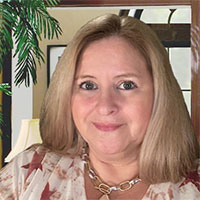 About The Author: Mystic Shelley About The Author: Mystic Shelley
Mystic Shelley is a five-star psychic, Reiki healer, clairvoyant, and empathic reader. She provides her clients with truthful insights into past, present, and future happenings with the aid of her trusted guides. Her areas of expertise include love, relationships, career, finance, and all aspects of life. Born with talents that identified her as a gifted psychic, Mystic Shelley initially hesitated to embrace her abilities. In her 30s, a fortuitous encounter with a renowned psychic set her on a path that awakened her gifts. With clairvoyance and empathy as her innate abilities, her psychic mentor expanded those skills, advancing her talents. With experience came mastery and now she possesses a growing client base that sings her praises. Additionally, she has also actively assisted other psychics in developing their abilities. If you seek straightforward and sincere insights, schedule a reading with Mystic Shelley now at PsychicAccess.com
|
In the domain of Chinese astrology, the Yin Wood Snake plays a prominent role in the mystical year. As one of the twelve zodiac signs, the Snake signifies wisdom, intuition, and transformation. Coupled with the Yin Wood element, this celestial entity embodies a distinct set of traits that shape its influence on individuals born under its sign. In this text, we will delve into the mystical features of the Yin Wood Snake and enhance our understanding of its symbolism and impact.
The Yin Wood Snake is linked to the years 1965 and 2025 in the Chinese zodiac calendar. Those born under this sign are thought to possess a composed and tranquil nature, often exhibiting a quiet confidence that attracts others. They are recognized for their adaptability and sharp observational skills, making them proficient problem solvers and strategists.
Wood, as an element, denotes growth, flexibility, and creativity. When paired with the Yin energy, it infuses a nurturing and compassionate facet into the Snake’s character. Individuals born under the Yin Wood Snake are typically perceived as gentle and caring, always ready to assist those in need. They have a natural gift for establishing emotional connections, rendering them excellent friends and confidants.
One of the most noteworthy qualities of the Yin Wood Snake is its capacity to transform and shed old skin, paralleling the actions of a snake. This transformative ability makes them skilled at reinventing themselves and adjusting to new circumstances. They possess a strong sense of self-awareness and are perpetually in pursuit of personal growth and development. This characteristic often propels them to explore various fields and interests throughout their lives, resulting in diverse and multi-talented beings.
In terms of relationships, the Yin Wood Snake exhibits loyalty and dedication. They cherish deep connections and seek partners who can match their emotional intensity. However, they can also be quite self-sufficient and require their own space for introspection. It’s essential for their loved ones to acknowledge and respect this need for solitude.
Career-wise, those birthed under the Yin Wood Snake often gravitate towards creative sectors such as art, design, or writing. Their imaginative and innovative disposition allows them to thrive in these fields. They inherently possess the ability to think divergently and provides unique solutions to challenges. Their calm demeanor also positions them as excellent leaders and managers, allowing them to navigate delicate situations with elegance and composure.
Health-wise, the Yin Wood Snake generally enjoys good vitality and resilience. However, they should be cautious of their tendency to overextend themselves due to their ambitious nature. Regular exercise, a balanced diet, and adequate rest are vital for sustaining their well-being.
In conclusion, the Yin Wood Snake presents a captivating and mystical figure in the Chinese zodiac calendar. Individuals born under this sign possess a distinctive combination of wisdom, adaptability, and creativity. Their capacity for transformation and reinvention, along with their nurturing and compassionate nature, makes them truly remarkable. Whether in personal relationships or professional endeavors, the Yin Wood Snake infuses a touch of magic and depth into everything they undertake. Continue reading →

